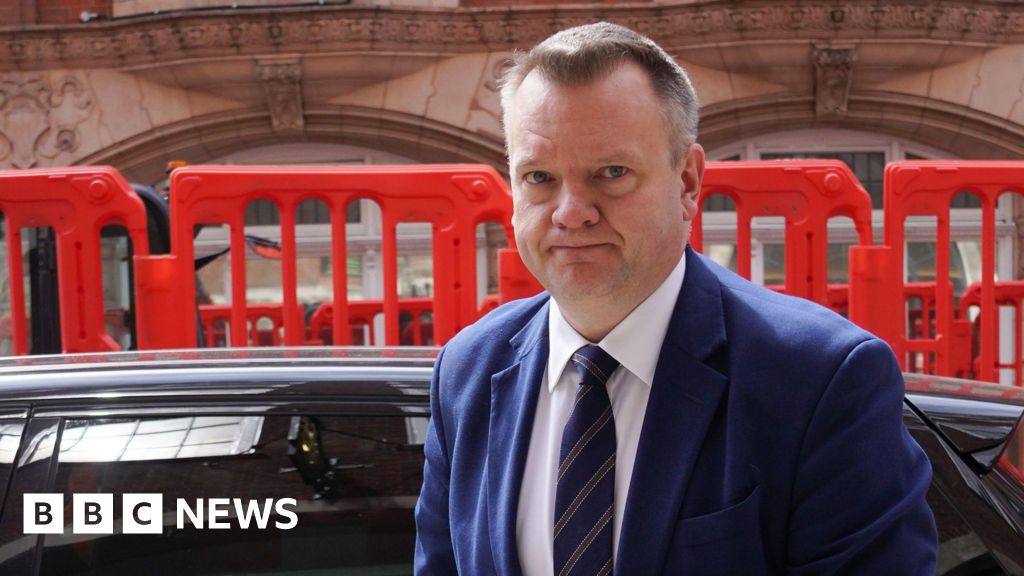ARTICLE AD BOX
By James Landale
Diplomatic correspondent
Image source, Getty Images
Image caption,There were concerns that some of the billions spent on PPE may have paid factories using forced labour in China
The NHS in England will be barred from using goods and services linked to slavery or human trafficking under a law to be introduced by the government.
It would prevent the health service buying equipment worth billions from parts of China where it is claimed forced labour is used in supply chains.
The government said it wanted to use the NHS's buying power to help "eradicate modern slavery".
MPs are expected to hold a vote on the measure and pass it next week.
Health Secretary Sajid Javid is due to introduce the new law as an amendment to the Health and Social Care Bill on Friday, after coming under cross-party pressure.
The amendment says the health secretary must make regulations to "eradicate" the use of goods and services in the health service in England that are "tainted" by slavery and human trafficking.
The change comes after Britain bought billions of pounds of protective health equipment during the Covid pandemic. some of which was allegedly manufactured by forced labour in China.
The government revealed in February that the UK had bought £5.8bn worth of lateral flow tests from China.
There have particularly been concerns about the use of forced labour in the Xinjiang province of western China. Reports have documented the detention of many thousands of people - mostly the largely Muslim Uyghur minority - in camps the authorities insist are for the re-education of extremists.
Details of the new law have still to be worked out but the regulations are expected to set out the steps the NHS should take to assess the risks associated with individual suppliers and the basis on which they should be excluded from any tendering process.
Campaigners say this would effectively create a blacklist of companies banned from providing goods and services to the NHS - including medical equipment, security technology and basic infrastructure.
A senior government source said the amendment would help ensure the NHS was not buying or using goods or services involving any kind of slave labour.
"It's absolutely right that we use the NHS - a huge procurer of all sorts of goods and services - to help eradicate modern slavery around the world," the source said.
'Root out slavery completely'
Liberal Democrat foreign affairs spokesperson Layla Moran said: ""This is long overdue. It should not have taken a pandemic to shine a light on the hugely concerning links between supply chains involving forced labour - including those in Xinjiang - and PPE and other items used in our healthcare sector."
She said the government should not stop here and should make a "concerted effort" to tackle modern slavery in all UK supply chains, as well as banning goods from Xinjiang altogether.
Iain Duncan Smith, the former Conservative leader, said it was a "significant move" that came after MPs had campaigned hard.
He urged all other government departments to introduce the same regulations, saying: "We will be sending the most powerful signal to those around the world that exploit and terrorise those weaker than themselves that the swords of justice are on their trail."
Luke de Pulford, chief executive of anti-slavery campaign group Arise, which pushed for the change, said: "This is easily the most significant advance in supply chain regulation since the Modern Slavery Act in 2015, and in many ways goes much further.
"I know all in the anti-slavery movement hope that the rest of government follows the health secretary's lead on this, and roots out slavery from our supply chains completely."

 3 years ago
107
3 years ago
107








 English (US) ·
English (US) ·